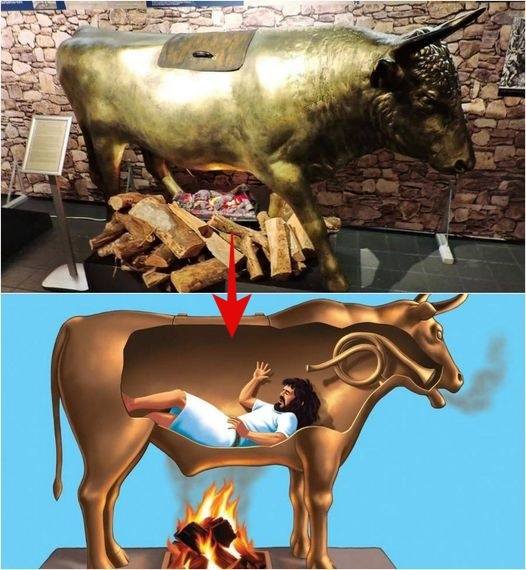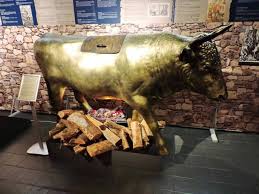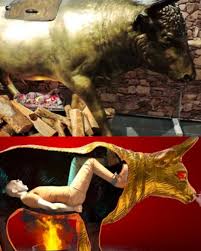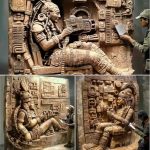The Dark History of the Brass Bull: Torture Turned on Its Creator

Deep within the ruins of ancient Sicily, archaeologists have unearthed fragments of the infamous Brass Bull, a torture device that embodies the depths of human cruelty and revenge. Forged in gleaming bronze, this horrific invention was designed to inflict unimaginable suffering, with victims locked inside while fires raged beneath. As the flames roared, the screams of the imprisoned would echo through sculpted pipes, transforming their agony into a grotesque symphony of despair.

The legend surrounding the Brass Bull adds a chilling layer to its already dark history. It is said that the very inventor, a man consumed by his own malevolent creation, met his demise inside the monstrous device. Whether fact or myth, this narrative encapsulates the ironic twist of fate that often accompanies tales of hubris. The Brass Bull stands as a testament to humanity’s darkest fascination: the spectacle of suffering, where pain becomes a form of entertainment for the onlookers.

As historians meticulously examine the charred remains and metallurgic evidence, one undeniable truth emerges—civilization’s progress has always danced alongside barbarity. This chilling relic serves not only as a reminder of the cruelty that can emerge from human ingenuity but also raises questions about the moral implications of such creations. What drives individuals to devise methods of torture? Is it purely a reflection of societal values, or does it stem from a deeper, darker aspect of human nature?
The discovery of the Brass Bull invites contemplation about the lengths to which humanity has gone in the pursuit of power and dominance. As we reflect on this ancient artifact, we are compelled to consider its implications for modern society. In an age where technology continues to advance at an unprecedented pace, what parallels can we draw between historical acts of cruelty and contemporary issues such as surveillance, warfare, and capital punishment?

In conclusion, the Brass Bull is more than just a relic of the past; it is a mirror reflecting the terrifying ingenuity of the ancient world and the darker impulses that lurk within humanity. As we confront the haunting legacy of such devices, we must grapple with the ongoing tension between progress and morality, ensuring that the lessons of history are not forgotten in the relentless march of civilization











